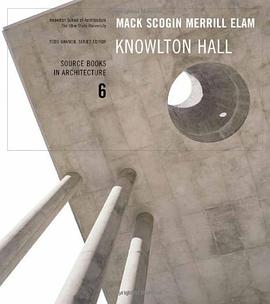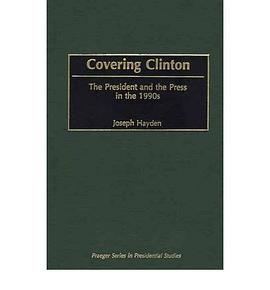

具体描述
Intelligence was a central element of the Cold War and the need for it was expected to diminish after the USSR's collapse, yet in recent years it has been in greater demand than ever. The atrocities of 11 September and the subsequent "war on terrorism" now call for an even more intensive effort. Important questions arise on how intelligence fits into the world of increased threats, globalization and expanded international action. This volume contains the recent work on this subject by Michael Herman, British intelligence professional for 35 years and Oxford University academic. It compares intelligence with other government information services, and discusses the British intelligence system and the case for its reform. It also addresses the ethical issues raised by intelligence's methods and results: "do they on balance make for a better world or a worse one?". Other chapters explore a wide range of intelligence topics past and present, including the transatlantic relationship, the alliance strategies of Norway and New Zealand, Mrs Thatcher's "de-unionization" of British Sigint, and personal memories of the British Cabinet Office in the 1970s. Michael Herman argues for intelligence professionalism as a contribution to international security and for its encouragement as a world standard. The modern challenge is for intelligence to support international cooperation in ways originally developed to advance national interests, while at the same time developing some restraint and international "rules of the game", in the use of intrusive and covert methods on its traditional targets. The effects of 11 September on this challenge are discussed in a thoughtful afterword.
作者简介
目录信息
读后感
评分
评分
评分
评分
用户评价
这是一本读起来令人心神不宁,却又不得不读完的书。它的语言风格非常具有批判性,充满了对现状的深刻反思,但这种反思并非是无病呻吟的抱怨,而是建立在对全球数字基础设施的深刻理解之上。我欣赏作者对新兴地缘政治格局的分析,尤其是将网络空间视为“第五战场”的论断,并详细阐述了主权国家如何在这一领域进行隐秘的博弈。书中关于“影子AI”和“自主决策系统”如何被集成到国家安全战略中的部分,读起来有一种科幻照进现实的错愕感。它并非提供简单的答案,而是抛出了一系列极为棘手的问题:当我们把生死决策权交给机器时,责任主体如何界定?这种哲学上的拷问,让整本书的立意拔高了一层。此外,作者在书的后记中对未来十年情报环境的预测,也显得非常脚踏实地,不像某些同类书籍那样空泛。总而言之,它成功地将一本关于“服务”的书,写成了一部关于“权力、心智与数字主权”的深度报告,让我对这个时代的面貌有了更深刻、也更冷峻的认知。
评分这本书的封面设计得非常有现代感,那种深沉的蓝色调配上一些数字化的光晕效果,一下子就抓住了我的眼球。我原本以为它会是一本枯燥的学术著作,但翻开第一页我就发现自己错了。作者的叙事方式非常引人入胜,他没有一上来就抛出复杂的理论,而是从一些引人深思的历史事件切入,比如冷战时期情报机构的转型,这立刻让我产生了强烈的代入感。接着,书的脉络非常清晰地转向了当代信息技术的颠覆性影响。我特别欣赏他对“信息战”的定义和解析,不仅仅是网络攻击,更是一种对认知和舆论的微妙操控。书中提到的案例,比如社交媒体如何被用来进行深度渗透和影响力运作,让我感到既震撼又警醒。比如,他详细描述了一个虚构但基于真实逻辑的情景:一个小型情报机构如何利用开源信息和AI分析来预测某国政治动荡的爆发点,这种前瞻性的分析能力,真是让人不寒而栗。整本书读下来,感觉就像是接受了一次高强度的思维体操,它迫使你去重新审视你每天接触到的所有信息流的背后逻辑。作者的论证逻辑严密,但用词却非常贴合普通读者的理解,避免了过多的技术术语堆砌,使得这样一本严肃的主题变得触手可及。对于任何对现代权力结构和信息安全感兴趣的人来说,这都是一本不可多得的入门读物。
评分这本书的叙事节奏掌控得非常好,像一部精密的钟表。它没有被淹没在对最新科技名词的追逐中,而是始终聚焦于“人”——那些在信息迷雾中运作的分析师、决策者和被监控的对象。作者对情报人员心理侧写的描绘尤为出色,他剖析了在高度不确定性和信息过载的环境下,人类决策的脆弱性以及如何通过精心设计的“信息污染”来利用这种脆弱性。我尤其关注了书中关于“认知安全”那一章,它不再将信息安全视为防火墙和杀毒软件的问题,而是将其提升到了心智层面。作者用犀利的笔触揭示了,在一个每个人都既是信息生产者又是信息消费者的时代,最大的安全漏洞可能就在我们的大脑里。书中对比了东西方在数据利用和公民自由之间的不同哲学路径,这种跨文化的比较视角,极大地拓宽了我的视野。这本书读完后,我的阅读习惯发生了明显的改变,我会下意识地去质疑那些看似完美、过于顺畅的信息流,开始主动寻找信息背后的“缺失部分”,这本身就是对信息时代的最佳免疫。
评分我必须说,这本书的深度和广度超出了我的预期。我原本只是想找一本关于当代间谍活动的书,结果发现这更像是一部关于社会控制和数字主权的哲学探讨。作者的洞察力令人称奇,他不仅仅停留在描述“发生了什么”,更深入地剖析了“为什么会这样”以及“接下来会怎样”。尤其是在讨论数据隐私和国家安全之间的永恒张力时,作者的措辞显得非常老练和中立,他没有简单地站队,而是将这个复杂的伦理困境摆在了桌面上,供读者自行审视。书中引用了大量未曾公开的智库报告和一些学术界的前沿观点,将原本分散的知识点串联成一个宏大的信息生态系统图景。我尤其喜欢其中关于“预测性情报”的部分,它探讨了算法偏见如何可能在无形中固化或加剧现有的社会不公,这让我开始反思自己日常使用的搜索引擎和推荐系统,它们构建的“信息茧房”究竟有多坚固。这本书的写作风格是那种典型的“冷静的学术报告夹杂着悬疑小说的节奏”,即使是在描述最枯燥的技术协议时,作者也能用一种近乎诗意的笔法勾勒出数字时代的宏大图景,让人读起来欲罢不能,简直是信息时代的一部“史诗”。
评分坦白讲,我一开始对这类题材有些敬而远之,总觉得里面充斥着阴谋论和夸大的描述。但这本书的作者显然有着深厚的专业背景,他行文极其审慎,每一项论断都有确凿的资料作为支撑。它不是在兜售恐惧,而是在描绘现实的复杂性。书中对于情报界在分布式计算和量子加密领域的前沿投入有非常精彩的描述,这部分内容虽然技术性略强,但作者巧妙地用类比的方式解释了其战略意义,让我这个非技术背景的读者也能领会到技术的‘火力’所在。最让我印象深刻的是,作者探讨了“去中心化”对传统情报体系的冲击。当信息不再集中于少数几个强力机构手中时,权力结构如何演变?他提出的“信息碎片化导致的权力分散与聚合”这一论点,非常具有启发性。这本书的排版和注释系统也做得非常好,大量的脚注提供了深入研究的线索,对于那些想要深挖某一特定议题的读者来说,简直是宝藏。它真正做到了既能让大众读者领略全貌,又能让专业人士找到新的研究视角,是一种非常罕见的平衡艺术。
评分 评分 评分 评分 评分相关图书
本站所有内容均为互联网搜索引擎提供的公开搜索信息,本站不存储任何数据与内容,任何内容与数据均与本站无关,如有需要请联系相关搜索引擎包括但不限于百度,google,bing,sogou 等
© 2026 book.wenda123.org All Rights Reserved. 图书目录大全 版权所有




















